It was founded by the Venetians in 1684, when they decided to abandon the
stifling space of the Castle of Agia Mavra and transfer the island’s capital
to its current location. The city was developed according to a specific
plan. The urban design of the city complied with the morphology of medieval
cities that had the dominant large square and narrow alleys, although the
Middle Ages had come to an end and in Western Europe new street layouts
were developed. After the earthquake of 1948, and more specifically after
the1980’s, the city spread more and as such acquired its present form.
Numerous interesting temples, dated since the Venetian domination period,
are preserved and as they bear significant Venetian architectural elements.
Among the most important temples of that era are Agios Spyridonas (1685),
Ag. Nikolaos (1687), Ag. Dimitrios (1688), the temple of Pantokratoras
(1700) and many more. (cf. below city plan).
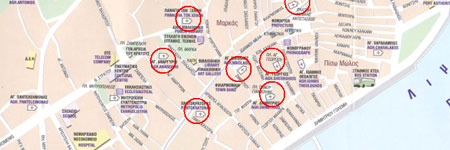 |
The churches of Lefkada that were first built during
the Venetian period and have western architectural influences
(Map
from the book LEFKADA, Anavassi Publications). |
| |
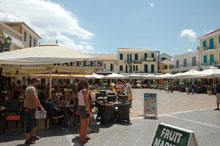 |
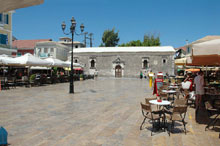 |
| The central square of Lefkada |
The temple of Agios Spyridonas; Venetian architectural elements are visible |
| |
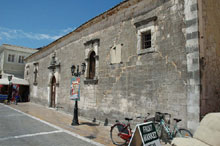 |
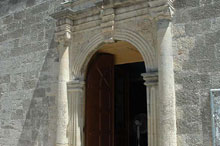 |
| The temple of Agios Spyridonas... |
...and the entry of Agios Nikolaos’ temple |
| |
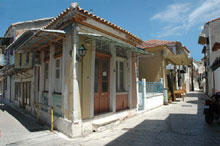 |
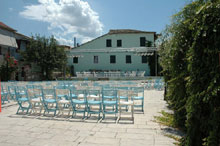 |
| Traditional house in the urban web of Venetian mapping
of the city |
Aggelos Sikelianos’ residence, where “Celebrations
of Art and Literature” as well as other cultural events take place |
| |